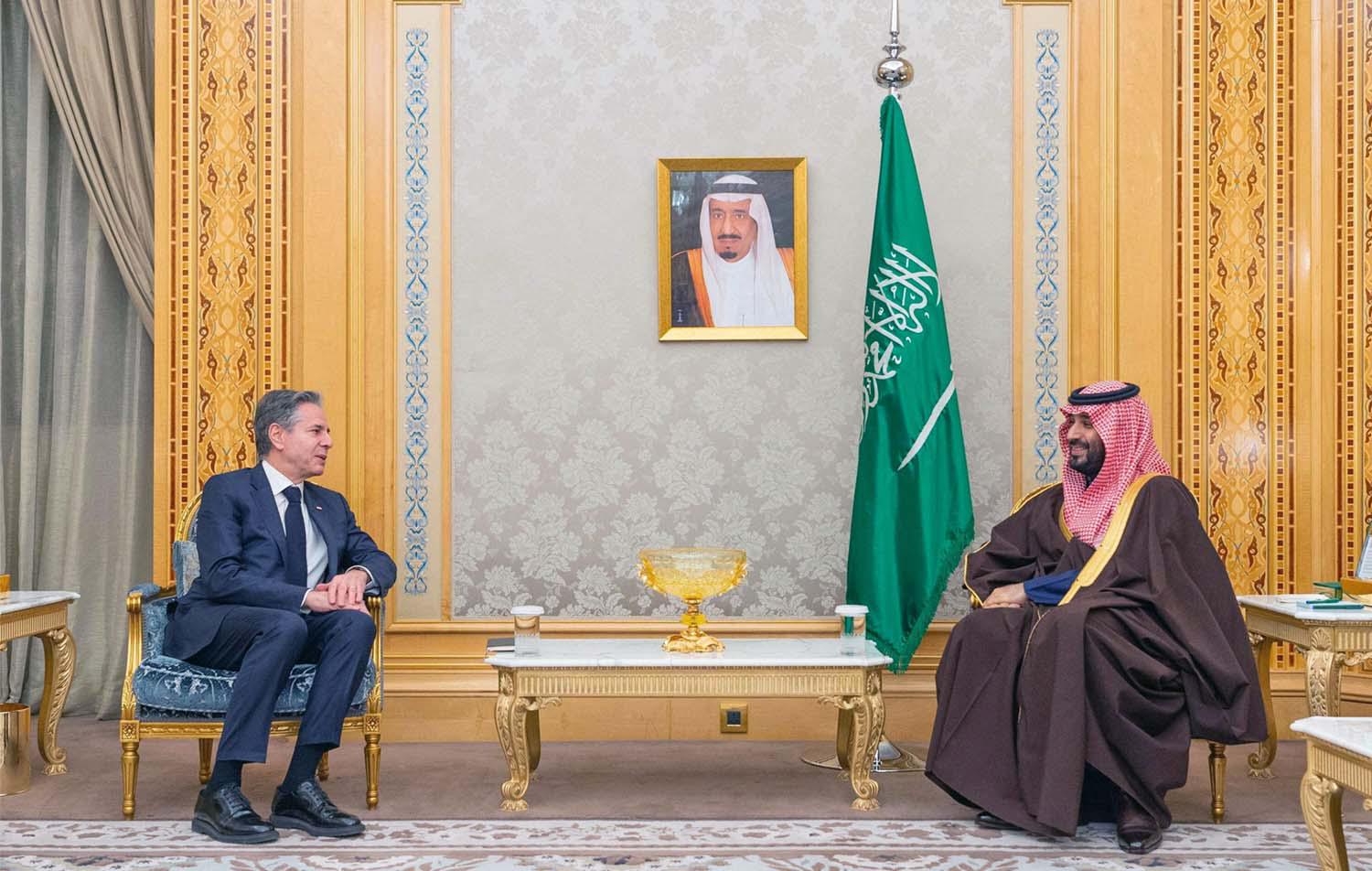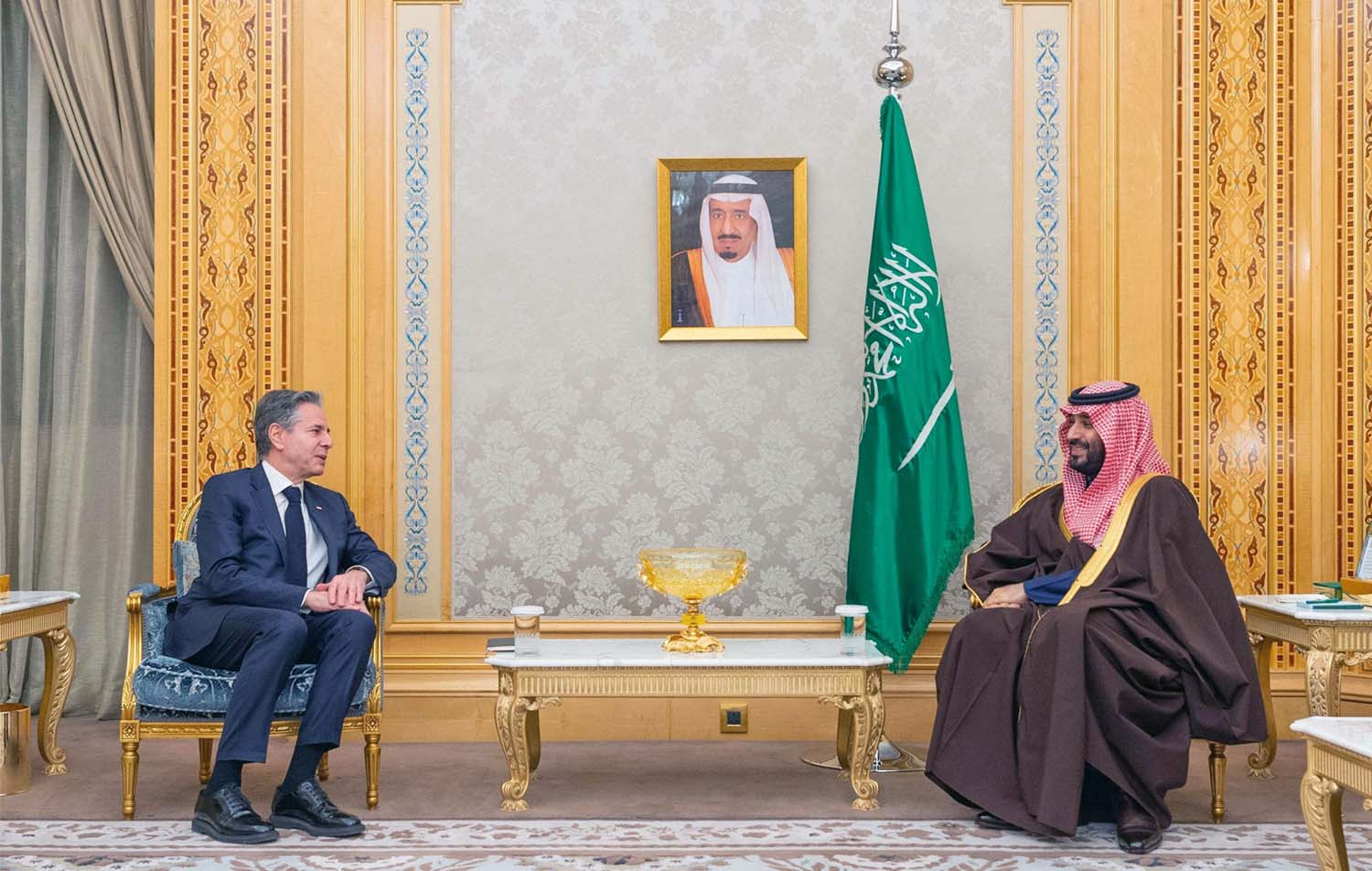Constants of Saudi Arabia’s position on normalization
Few other issues dominate the rapidly unfolding events in the Middle East as much as the possible normalization of relations between Saudi Arabia and Israel, which occupies a large place in overall discussions about what is happening in Gaza or the regional situation in general.
Recently, Israeli Energy Minister Eli Cohen said that normalization of relations with Saudi Arabia is possible even if Israel refuses to work towards the establishment of a Palestinian state. In an interview with the Times of Israel, Cohen argued that security concerns related to the Iranian axis would outweigh Riyadh’s demands for a two-state solution as part of a normalization agreement.
There is a certain realism in the Israeli minister’s statements. He argues that peace with Saudi Arabia is certainly possible. This assessment is supported by the Saudi leadership. Nothing significant has changed in this strategic position. The Saudi commitment to normalizing relations with Israel through a clear solution to the Palestinian issue was a consistent position even before the start of the Gaza war.
Before discussing the current Saudi position, which links the normalization of relations with Israel to a clear political solution to the Palestinian issue, it is necessary to recall the statement made by Saudi Crown Prince Mohammed bin Salman in an interview with Fox News a few months before the outbreak of the Gaza war.
It is an important indication of Saudi Arabia’s attitude towards a possible peace agreement. At the time, he said, “For us, the Palestinian issue is very important. We need to solve that part.” He added that negotiations were already underway and that it remained to be seen where they would lead.
He continued: “We hope that will reach a place, that it will ease the life of the Palestinians, get Israel as a player in the Middle East.” This is a consistent and clear position that defines the Saudi stance, despite all the speculation and conjecture circulating on the subject.
This position was recently reiterated by Saudi Foreign Minister Prince Faisal bin Farhan, saying that there will be no normalization of relations with Israel without a long-term solution to the Palestinian issue. Earlier, the Saudi ambassador to Britain, Prince Khalid bin Bandar Al Saud, had stated that Riyadh was open to establishing relations with Israel if this was part of a two-state solution.
This revealing and precise sequence of statements and positions confirms that the direction of Saudi Arabia - which fully understood the situation before the war began and recognizes that a solution to the Palestinian issue is the cornerstone of a genuine peace with Israel - has not changed. A discussion of Saudi foreign policy, whether in relation to Iran or Israel, must of course take into account strategic changes and developments. It should not jump to conclusions based on old data.
The renewed cooperation between the two neighboring countries must be taken into account when assessing the Saudi stance towards Iran. It is crucial to understand the significance of Saudi Arabia’s non-participation in the US-led Operation Prosperity Guardians coalition to combat the maritime threat in the Red Sea.
This is a key issue, but there is another urgent Saudi strategic priority related to cooling crises and calming the regional atmosphere. It is against this background that the Saudi focus on ensuring regional and international security and stability in cooperation with all, without participating in alliances or axes, should be understood.
It is clear that Saudi Arabia is initially focusing more on self-reliance in its foreign policy and then building a strong network of partnerships with major international powers in order to diversify its strategic capabilities in the military, economic, security and trade sectors, among others. It is therefore no longer possible to speak of a unilateral path of Saudi alliances.
However, this does not change the fact that Saudi Arabia is interested in regional and international cooperation to maximize the benefits of partnership strategies and achieve the ambitious goals of Vision 2030. Saudi Arabia’s focus on normalizing relations with Israel is evident, as is the Kingdom’s stance on encouraging the reconstruction of the Gaza Strip.
Interestingly, Foreign Minister Prince Faisal bin Farhan said, “There is no point in talking about the reconstruction of Gaza if we’re not going to talk about first ending the killing.”
He added: “Again, as long as we’re able to find a pathway towards a solution, a resolution, a pathway that means that we’re not going to be here again in a year or two, then we can talk about anything. But if we’re just re-setting to the status quo before October 7th, in a way that sets us up for another round of this as we have seen in the past. We’re not interested in that conversation.”
I believe this is the first time that the positions of the Gulf states have been discussed so frankly and openly with friendly countries in order to achieve real security and stability. This discussion reflects the fundamental changes that have taken place in recent years in the foreign policies of the Gulf Cooperation Council countries in general and Saudi Arabia in particular.
Linking the normalization process of Saudi-Israeli relations to the resolution of the Palestinian issue speaks of a sincere desire to establish serious peace relations with Israel.
This would be achieved by building a solid foundation for these relations, namely a favorable regional environment that ensures this goal without jeopardizing Saudi interests and its central strategic position in the Arab and Islamic world. Saudi Arabia has also played a leading role in this regard, not to mention its decades-long commitment to the Palestinian people.
Saudi Arabia’s position on normalization is rationally based and reflects the strategic convictions of the Saudi leadership. Peace without approaches that lead to a solution to the Palestinian issue is tantamount to a gift to political opportunists, not to mention terrorist organizations and extremists who feed on slogans in defense of Palestine and its people.
It is therefore in the interest of Saudi Arabia and Israel to achieve a breakthrough in order to create a genuine atmosphere of peace in the region that creates a culture of coexistence and mutual security between the Israeli and Palestinian peoples.
Salem AlKetbi, UAE political analyst and former Federal National Council candidate







